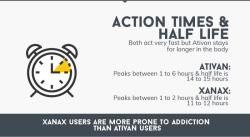What are examples of substance abuse?
Substance abuse refers to the harmful or hazardous use of psychoactive substances, including alcohol and illicit drugs. It involves the repeated use of substances in ways that can lead to health problems, social issues, or impaired functioning. Here are examples of substances commonly associated with abuse:
Alcohol: Excessive and problematic consumption of alcoholic beverages can lead to alcohol abuse. This may involve binge drinking, drinking in hazardous situations, or experiencing negative consequences due to alcohol use.
Tobacco/Nicotine: Smoking cigarettes, cigars, or using smokeless tobacco products can be considered substance abuse. Nicotine, the addictive component in tobacco, can lead to dependence and various health issues.
Marijuana: While some regions have legalized marijuana for medicinal or recreational use, its excessive or irresponsible consumption can still be considered substance abuse. This may include using it in situations where it is unsafe or having negative consequences as a result.
Prescription Medications: Misuse of prescription medications, such as opioid painkillers, benzodiazepines, or stimulants, constitutes substance abuse. This can involve taking higher doses than prescribed, using someone else's prescription, or using the medication for non-medical purposes.
Cocaine: Cocaine is a stimulant drug that can be abused for its euphoric effects. Repeated use can lead to addiction and various physical and mental health problems.
Heroin: A highly addictive opioid drug, heroin is derived from morphine. Its use can lead to severe physical and mental health consequences, including a high risk of overdose.
Methamphetamine: Methamphetamine is a powerful stimulant that can be abused for its energizing effects. Long-term use can result in addiction, cognitive deficits, and other health issues.
Hallucinogens: Substances like LSD, psilocybin mushrooms, and PCP can be abused for their hallucinogenic effects. While not considered highly addictive, misuse can lead to psychological distress and impaired judgment.
Ecstasy (MDMA): Often associated with party or club culture, MDMA is a synthetic drug that can be abused for its stimulant and hallucinogenic effects. Prolonged use may have negative effects on mood and cognitive function.
Inhalants: Some individuals abuse household or industrial products, such as glue, paint thinners, or nitrous oxide, for their mind-altering effects. Inhalant abuse can cause serious health issues and may be life-threatening.
It's important to note that substance abuse is a complex issue, and individual responses to substances can vary. Additionally, substance abuse can lead to addiction, which is characterized by compulsive drug-seeking, continued use despite harmful consequences, and long-lasting changes in the brain. If you or someone you know is struggling with substance abuse, seeking professional help is recommended. Treatment options may include counseling, therapy, and in some cases, medication-assisted treatment.
Providing examples of behaviors that constitute substance abuse
Substance abuse encompasses a wide range of behaviors that involve using a substance, such as a drug or alcohol, in a way that is harmful to your physical, mental, or emotional health. It's important to note that substance abuse is not limited to illegal drugs, and even seemingly harmless substances like prescription medications can be abused if used in the wrong way.
Here are some common examples of behaviors that can constitute substance abuse:
1. Using large amounts of a substance: This could involve consuming more than the recommended dosage of a medication, drinking more alcohol than what is considered safe, or taking more drugs than necessary to achieve the desired effect.
2. Using a substance more often than intended: This could involve using a substance daily or even multiple times a day, even when it isn't needed or interferes with daily responsibilities.
3. Continuing to use a substance despite negative consequences: This could involve continuing to use a substance even though it is causing problems at work, in relationships, or with your health.
4. Developing a tolerance to a substance: This means that you need to take more and more of the substance to achieve the same effect, which can lead to increased risk of overdose and other health problems.
5. Experiencing withdrawal symptoms when you try to stop using the substance: This is a sign that your body has become dependent on the substance and will experience physical and emotional discomfort when you try to stop using it.
6. Engaging in risky behaviors to obtain or use the substance: This could involve stealing, selling drugs, or engaging in other illegal activities to get the substance you need.
7. Neglecting important responsibilities due to substance use: This could involve missing work or school, neglecting your children, or failing to meet other important obligations because you are preoccupied with obtaining or using the substance.
8. Experiencing mental health problems related to substance use: This could include anxiety, depression, psychosis, or other mental health conditions that are caused or worsened by substance use.
It's important to remember that substance abuse can manifest differently in different people. There is no one-size-fits-all definition, and the severity of the problem can vary widely. If you are concerned that you or someone you know may be struggling with substance abuse, it is important to seek professional help.
Here are some resources that can help:
- The National Institute on Drug Abuse (NIDA): https://www.drugabuse.gov/
- The Substance Abuse and Mental Health Services Administration (SAMHSA): https://www.samhsa.gov/
- The National Council on Alcoholism and Drug Dependence (NCADD): https://www.ncadd.org/













